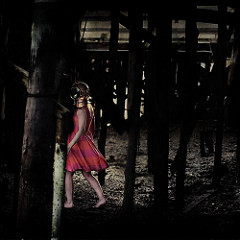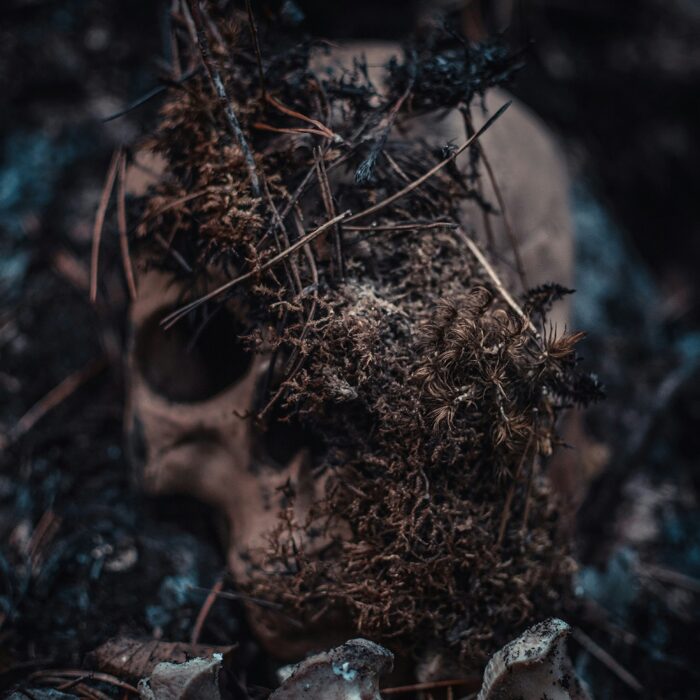You have no items in your cart. Want to get some nice things?
Go shopping
Some 15,000ft from the ocean floor, the Port of Vela floats above the abyssal depths of the North Atlantic. Equidistant to the moon, and the former constellation of Argo, it is suspended above the seabed like a translucent Fata Morgana, the outlines of its topography imperceptible to all but ghostly mariners, lucid dreamers, and cats with eyes the shade of amber.
By daylight, Vela is visible only when one is positioned at obtuse angles from the electromagnetic spectrum, and only when reflected in the shards of broken windows that have been fused from uroborus glass and stained with metallic salts. Needless to say, the intersection of these variables is so unlikely, that Vela is rarely glimpsed from the lucid shores of the living.
Nightly, ghost ships navigate Vela’s shadowy docks. Below deck, Joe Pegasus shuffles a deck of cards, illuminated by the light of the violet opalescent moon that slinks through the porthole. Ellipses of moonlight hover on the rotund table crafted from ponderosa wood and carved with the illegible etchings of former ghosts of Vela.
As the swift motion of propellers vibrate from the underbelly of the ship, Joe Pegasus deals cards to his friends, Cassiopeia Hydrangea and Christopher Andromeda. They puff Bolivar Belicosos cigars and sip White Russians while they whistle to fugues in G minor that play on an old Zenith radio, stained with dust and mildew.
In Vela, everything moves in a contrapuntal rhythm, and one cannot advance in a clockwise motion, nor maneuver laterally, once a route through its serpentine byways has been chosen. Journeys must be plotted entirely at the outset. Words spoken in jest are immediately engraved in the almanac, which, as dictated by the maritime laws of the nocturnal necropolis, cannot ever be altered.
800 light years have passed since Joe Pegasus and his friends lived on the lucid shores of the living. Now their existence consists of a nightly danse macabre through Vela’s contorted canals. Cassiopeia Hydrangea tends to the hydrophites, to the frozen roses and the shadow blossoms that canopy the afterdeck. The masts above billow with the winds of unfinished conversations that sweep in from the lucid shores.
Life on the ghost ship is a concentric scroll of familiar stories, the details interchanged only in subtle ways for occasional emphasis. With every repetition, the stories convert into riddles that echo through the decks and ricochet against the masts.
By the light of the exploding stars above, Cassiopeia Hydrangea, Christopher Andromeda and Joe Pegasus draw vast atlases of their former lives. She speaks wistfully of the sweeping mountain ranges of the Himalayas, the wind at her heels and the warmth of the sun at noon as it dappled her skin. Christopher Andromeda reminisces about his former riches as a trader of spices as he sailed the globe from Damascus to Sumatra. He recalls the smell of salt in the ocean breeze and the endless blue of possibility.
Unbeknown to them, the inhabitants of the ship are the ghosts of the path not taken, the what-ifs, and the all that never was, and the fugue that they whistle each night, the song of the forking road. Once they have taken inventory of each path not taken, the what-ifs and all that never was, they travel along the astral pathway, guided by the light of exploding gamma rays, to the lucid shores of the living.
Here they whisper in the ears of sleeping mortals, whistling in the windows of the house of what actually is, the house of the path chosen, the house of all that ever was. At dawn, they dissipate in the sunlight. The following night, they stand again out on the deck of the ghost ship where they watch supernovas scatter across the sky as they peer up into the celestial sphere, so rife with possibility, so abundant with all that ever could be.
Eventually, Joe Pegasus and Christopher Andromeda return to their deck of cards. They shuffle and deal as they puff their Bolivar Belicosos and sip their White Russians. Hour after hour they deal each and every possible combination of cards. Cassiopeia Hydrangea stays out on the deck where she watches the lights of the lucid shores glimmer and whistles that familiar tune in G-minor.
She considers taking another midnight waltz through the port of Vela. Alternatively, she contemplates diving into the shadowy depths of that which lies below. In the bioluminescence of the deep-sea, all remorse and disappointment melts, and every unspoken love affair sleeps peacefully on the ocean floor. But Cassiopeia Hydrangea cannot resist another peek at the vast atlas of her former life, so she returns below deck, where she is dealt another hand, and she whistles away the hours until the port of Vela fades into the rising dawn.




